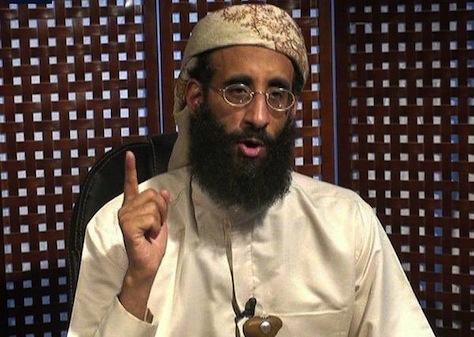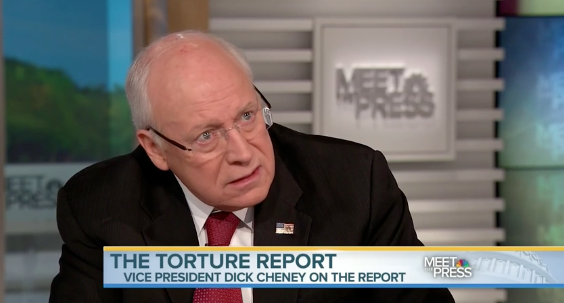
Though we don’t necessarily know incredibly much more about the US government’s factual basis for the targeted killing in September 2011 of Anwar al-Awlaki, a US citizen, the release of an Obama administration memo earlier today by a federal appeals court sheds new light on the administration’s legal rationale:
A federal appeals court in New York on Monday made public a redacted version of a 2010 Justice Department memo that signed off on the targeted killing of an American citizen, Anwar al-Awlaki, without a trial, following Freedom of Information Act lawsuits. The memo, signed by David Barron, who was then the acting head of the department’s Office of Legal Counsel and is now a federal appeals court judge in Boston, concluded that it would be lawful to target Mr. Awlaki for killing if his capture was not feasible. Intelligence analysts had concluded that Mr. Awlaki was an operational terrorist.
The Obama administration fought the disclosure, initially refusing to confirm or deny the memo’s existence. In January 2013, a Federal District Court judge ruled that it could keep the memo secret. But in April, the United States Court of Appeals for the Second Circuit ruled that portions of the memo containing legal analysis — but not those compiling the evidence against Mr. Awlaki — must be made public.
The memo argues that 18 U.S.C. § 1119, which addresses the foreign killing of US nationals, must incorporate the public authority exception, and it further argues that the exception permits either the US Department of Defense and/or the US Central Intelligence Agency to carry out the contemplated operation against Awlaki.
The memo also argues that Awlaki’s US citizenship doesn’t preclude DoD or CIA action, citing Hamdi v. Rumsfeld, the 2004 Supreme Court ruling that, subject to certain due process requirements, permits the detention of a US citizen as an ‘enemy combatant.’
Sharper legal minds will parse the contents of the memo, parts of which were redacted, and it presents many obviously difficult questions:
- Even if the US military is justified in killing Awlaki under the public authority exception, the CIA’s justification is a lot more controversial because it’s a US government agency, not the military. The heavy redactions in the memo, as it relates to the CIA, make the Justice Department’s rationale unclear.
- The US government’s statutory basis for targeting Awlaki lies in the Authorization to Use Military Force Against Terrorists (AUMF), originally enacted in 2001, which authorizes efforts not only against al-Qaeda, but also against forces ‘associated with’ al-Qaeda, including Al Qaeda in the Arabian Peninsula (AQAP). The argument is that this as true in Yemen (which, the Justice Department attorneys admit, is ‘far from the most active theater of combat’ between the United States and al-Qaeda.’) as it is in Afghanistan or anywhere in the world that al-Qaeda and ‘associated forces’ operate. But that broad global-battlefield interpretation isn’t universally accepted, even among many members of the US Congress that enacted the AUMF.
- The memo contemplates that Awlaki’s US citizenship bestows some protections, even in Yemen, under the Fifth Amendment’s Due Process Clause and the Fourth Amendment. As regards the Fifth Amendment, the memo again points to Hamdi, which uses a Mathews v. Eldridge balancing test. In a scenario where a US citizen/enemy combatant poses a continued and imminent threat, the Justice Department attorneys argue that the public interest far outweighs the private interest of guaranteeing due process. Though the memo also acknowledges that Awlaki’s targeting constitutes a ‘seizure’ under the Fourth Amendment, the memo again points to the ‘reasonableness’ balancing tests elucidated by the Supreme Court in prior rulings on the constitutionality of seizures.
Nevertheless, the true heart of this case isn’t necessarily the black-letter legal reasoning, fascinating and controversial though it may be. Throughout the memo, the Justice Department attorneys essentially assume Awlaki’s guilt as fact. That’s fine, because no one was asking the Office of Legal Counsel to assess Awlaki’s guilt. But it’s one thing to argue that the AUMF applies in full force to the US government’s ability to target enemy combatants who are US citizens, and it’s quite another thing to argue that Awlaki was an enemy combatant in the first place.
Even if you are willing to defer to the Obama administration’s interpretation on all of the issues of the law involved — the applicability of the AUMF, the applicability of the public authority exception, the non-applicability of the Fifth Amendment, the Fourth Amendment or any mitigating factors that accrue on the basis of US citizenship — we still don’t know how the US government determines how a US citizen can be lawfully targeted for legal force.
The most relevant question, still unanswered, is how the US government concluded that Awlaki crossed the line from ‘preacher spewing noxious opinions’ to ‘operational al-Qaeda militant.’
First, what specific actions did Awlaki take that caused him to be enemy combatant?
Secondly, on the basis of what evidence did the US government determine that Awlaki was an enemy combatant?
Finally, does anything about the process that the US government deployed in targeting Awlaki meet any kind of standards for due process, let alone those typically granted to US citizens under the Fifth Amendment?
On all three questions, we don’t know the answer because the Obama administration won’t release any information. Until and unless it does, the evidentiary standard for assassinating a US citizen abroad seems to be ‘when high-level government officials conclude it.’ Continue reading What’s the factual basis for killing Awlaki? →
![]()

